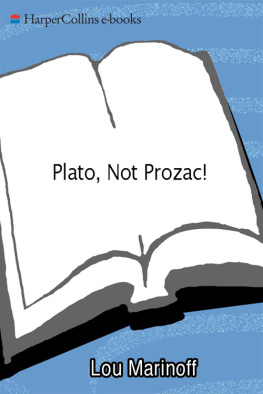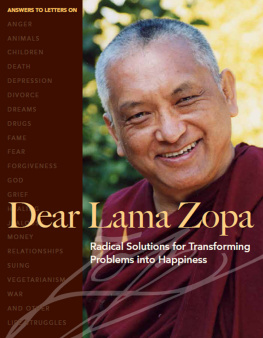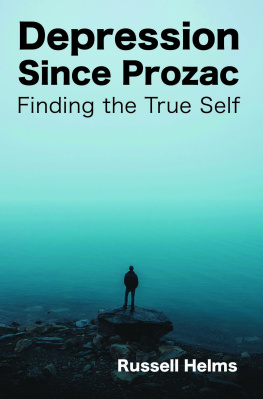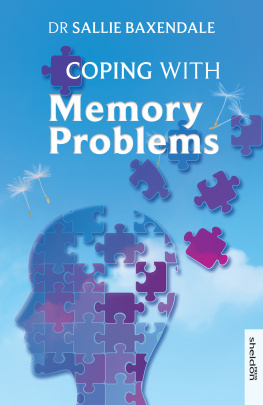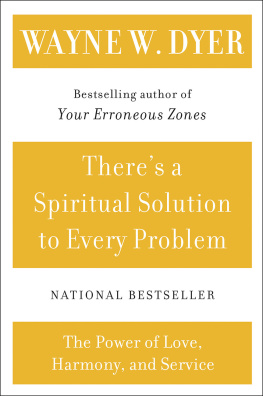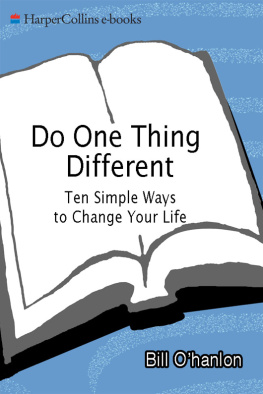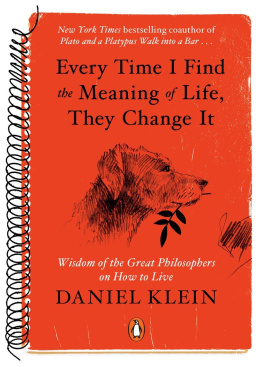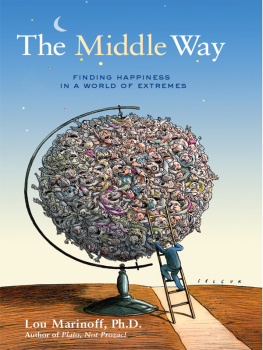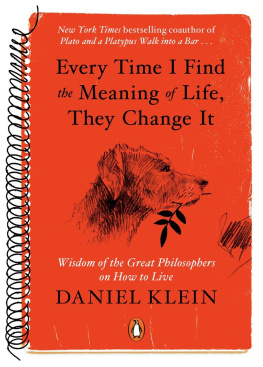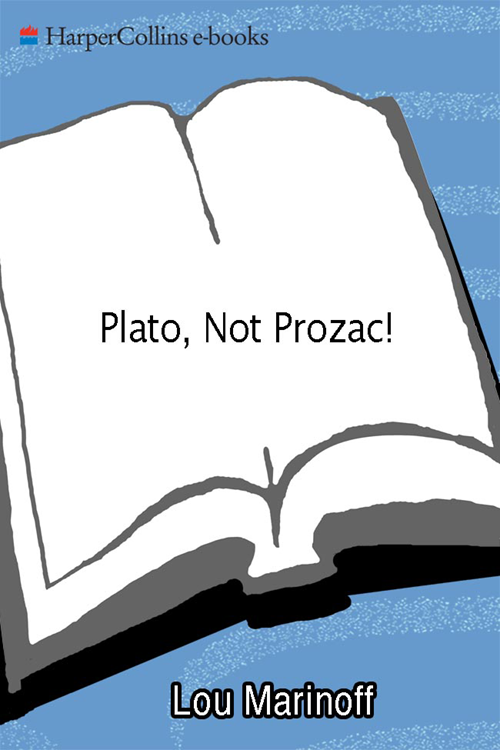To those who always knew philosophy was good for something, but could never say exactly what
1
What Went Wrong With Philosophyand Whats Going Right With It Lately
As for Diseases of the Mind, against them Philosophy is provided of Remedies; being, in that respect, justly accounted the Medicine of the Mind.
E PICURUS
To be a philosopher is not merely to have subtle thoughts, nor even to found a school. It is to solve some of the problems of life, not theoretically, but practically.
H ENRY D AVID T HOREAU
A young woman confronts her mothers terminal breast cancer. A man contemplates a midlife career change. A Protestant woman whose daughter is engaged to a Jewish man and whose son is married to a Muslim woman fears potential religious conflicts. A successful business executive struggles over whether to leave his wife of over twenty years. A woman is happily living with her partner, but only one of them wants children. An engineer and single father supporting four children is afraid that blowing the whistle on a design flaw in a high-pressure project could cost him his job. A woman who has everything she thought she wantedloving husband and children, beautiful house, high-paying careerstruggles with meaninglessness: when she looks at her life she thinks, Is this all there is?
All of these people have sought professional help in managing the problems they feel overwhelming them. In another day, they might have found their way to the offices of a psychologist, psychiatrist, social worker, marriage counselor, or even their general practitioner for help with mental illness. Or they might have consulted a spiritual adviser or turned to religion for moral instruction and guidance. And some of them may have been helped in those places. They may also have endured discussions about their childhoods, analysis of their behavior patterns, prescriptions for antidepressants, or arguments about their sinful nature or Gods forgiveness, none of which got to the heart of their struggle. And they may well have been signed up for a lengthy and open-ended course of treatment, with a focus on diagnosing the illness as though it were a tumor to be excised or a symptom to be controlled with drugs.
But now theres another option for people unsatisfied by or opposed to psychological or psychiatric therapy: philosophical counseling. What the people described above did was seek out a different kind of assistance. They consulted a philosophical practitioner, looking for insight from the worlds great wisdom traditions. As established religious institutions lose their authority with more and more people, and as psychology and psychiatry exceed the limits of their usefulness in peoples lives (and begin to do more harm than good), many people are coming to the realization that philosophical expertise encompasses logic, ethics, values, meaning, rationality, decision-making in situations of conflict or risk, and all the vast complexities that characterize human life.
People facing these situations need to talk in terms deep and broad enough to address their concerns. By getting a handle on their personal philosophies of life, sometimes with the help of the great thinkers of the past, they can build a framework for managing whatever they face and go into the next situation more solidly grounded and spiritually or philosophically whole. They need dialogue, not diagnosis.
You can apply this process in your own life. You can work on your own, though sometimes it helps to have a partner to converse with who can make sure youre not overlooking something or settling for rationalization over rationality. With the guidance and examples in this book, youll be ready to discover the benefits of an examined life, including peace of mind, stability, and integrity. You dont need any experience in philosophy, and you dont have to read Platos Republic or any other philosophy text (unless you want to). All you need is a philosophical turn of mind, which, since youve picked up this book and read this far, Id say you have.
A PHILOSOPHY OF ONES OWN
Everyone has a philosophy of life, but few of us have the privilege or leisure to sit around and puzzle out the fine points. We tend to make it up as we go along. Experience is a great teacher, but we also need to reason about our experiences. We need to think critically, looking for patterns and putting everything together into the big picture to make our way through life. Understanding our own philosophy can help prevent, resolve, or manage many problems. Our philosophies can also underlie the problems we experience, so we must evaluate the ideas we hold to craft an outlook that works for us, not against us. You can change what you believe in order to work out a problem, and this book will show you how.
Despite its current reputation, philosophy doesnt have to be intimidating, boring, or incomprehensible. Much of whats been written on the subject over the years certainly falls into one or more of those categories, but at its heart, philosophy examines the questions we all ask: What is a good life? What is good? What is life about? Why am I here? Why should I do the right thing? What is the right thing? These are not easy questions, and there are no easy answers or we wouldnt still be mulling them over. No two people will automatically arrive at the same answers. But we all have a set of operating principles we work from, whether or not we are conscious of them and can enumerate them.
The great thing about having thousands of years of thinking to draw on is that many of historys wisest minds have weighed in on these subjects and have left insights and guidelines for us to use. But philosophy is also personalyou are your own philosopher too. Take what you can learn from other sources, but to arrive at a way of approaching the world that works for you, youll have to do the thoughtful work yourself. The good news is that with the proper encouragement, you can think effectively for yourself.
And where do you find such encouragement? Here in this book, for starters. Plato, Not Prozac! offers you some of the fruits of philosophical practice. My fellow practitioners and I are not philosophers in the academic sense alone. Although many of us have Ph.D.s, teach in universities, and publish specialized articles, we do more than that: we also offer client counseling, group facilitation, and organizational consulting. We take philosophy out of purely theoretical or hypothetical contexts and apply it to everyday personal, social, and professional problems.
If you came to see me, I might discuss Kierkegaards thoughts on coping with death, Ayn Rands ideas on the virtue of selfishness, or Aristotles advice to pursue reason and moderation in all things. We might look into decision theory, the I Ching (Book of Changes), or Kants theory of obligation. Depending on your problem, wed examine the ideas of philosophers most applicable to your situation, those you would be most inclined to relate to. Some people like the authoritative approach of Hobbes, for example, while others respond to a more intuitive approach, like Lao Tzus. We might explore their philosophies in depth. But more likely youd have your own philosophical outlook and be looking to express it more clearly. Id act as a guide to elicit and illuminate your own ideas, and possibly to suggest some new ones to you.

